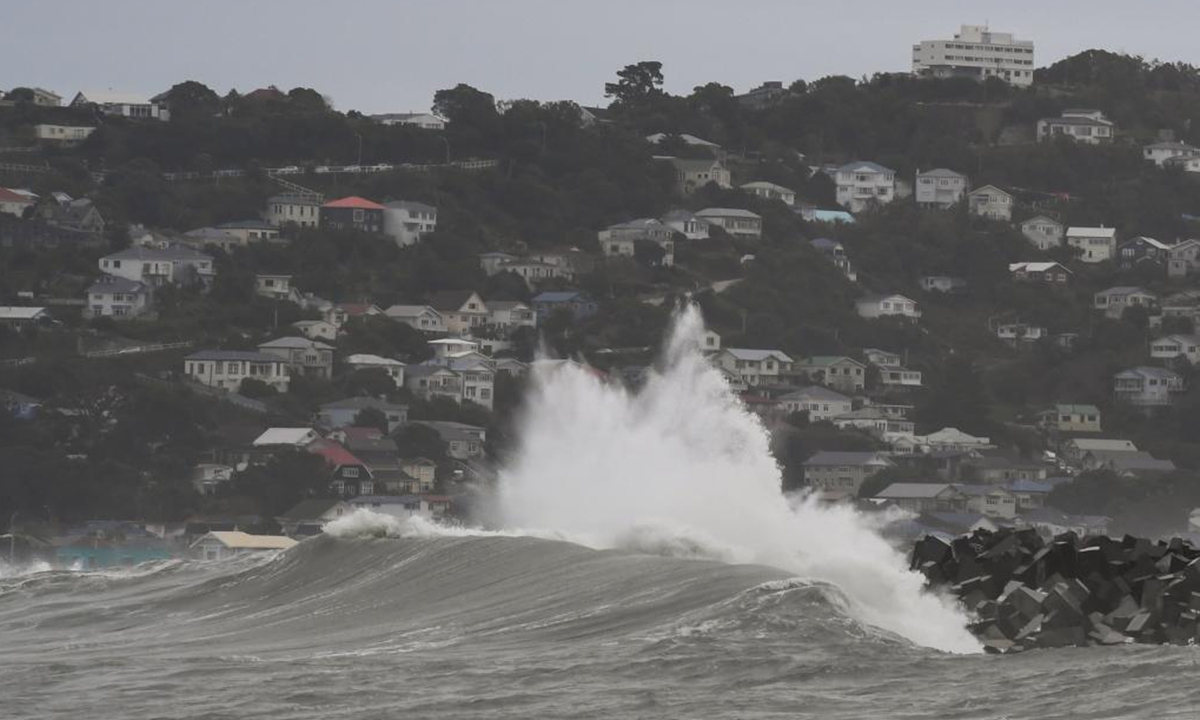
Large waves are seen off Wellington's southern coast in New Zealand, June 30, 2021. An Antarctic blast swept through New Zealand from Tuesday, whipping up waves as high as 6 meters near its capital city's southern coast. (Xinhua/Guo Lei)
New Zealand Prime Minister Jacinda Ardern on Sunday formally apologized for police crackdowns in the 1970s that "unfairly targeted" the country's Pacific community.The infamous "dawn raids" were carried out by officers and immigration officials, often accompanied by dogs, to arrest and deport individuals who had overstayed their work visas.
Pacific people comprised a third of overstayers but represented 86 percent of prosecutions, while Britons and Americans in New Zealand - who also comprised a third of overstayers - saw just five percent of prosecutions in the same period.
"Today, I stand on behalf of the New Zealand government to offer a formal and unreserved apology to Pacific communities for the discriminatory implementation of the immigration laws of the 1970s," Ardern told a gathering of Pacific dignitaries in Auckland.
"The government expresses its sorrow, remorse and regret that the dawn raids and random police checks occurred and that these actions were ever considered appropriate."
While the crackdown took place nearly 50 years ago, Ardern said they remained vividly etched in the memories of those affected and "lives on in the disruption of trust and faith in authorities."
Minister for Pacific Peoples William Sio, who emigrated with his family from Samoa to New Zealand in 1969, described the raids as "racism of the worst kind." Wellington encouraged migration from Pacific islands such as Samoa, Tonga and Fiji after World War II to fill worker shortages as the economy expanded.



